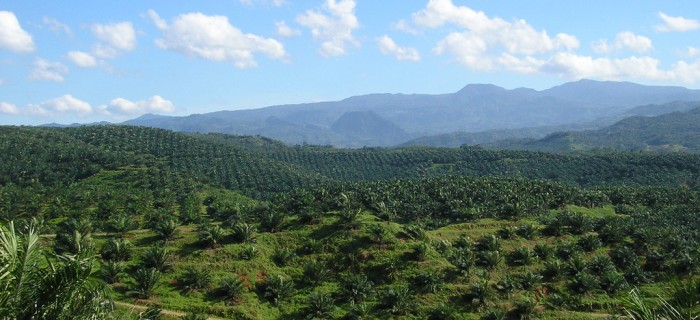Colombia Palm Oil Biodiesel Plantations: A “Lose-Lose” Development Strategy?
Food First Backgrounder, Winter 2007, Vol. 13, No. 4
Palm oil production for biodiesel is expanding rapidly in the global south. While not as prolific as Indonesia and Malaysia, Colombia is the fourth largest palm oil producer in the world and the largest in Latin America. The Colombian government—in collaboration with paramilitaries and palm agroindustries—is violently removing Afro-Colombian, indigenous, and peasant communities to expand monoculture palm plantations in an effort to demobilize paramilitaries and stimulate economic development in rural areas. With substantial financial backing from the US International Agency for Development (USAID) and the Colombian Agrarian Bank, and institutional support from the Inter-American Development Bank (IDB), the palm oil agroindustry is reaping large profits at the expense of the food sovereignty of small farmers and marginalized communities.
Land Rights Violations
Law 70 of the Colombian Constitution defines and protects the rights of Afro-Colombians to their communal lands in the Colombian Pacific region. In 2000, the government awarded a collective land title of over 100,000 hectares to black and peasant communities in northern Chocó. Despite land titles and legal protection guaranteed by the Colombian Constitution and penal code as well as international conventions, courts have been reluctant to intervene in cases of raids and illegal land seizures by paramilitaries and palm oil companies. Along the Curvarado and Jiguamiando River basins, locals have survived for generations on their own maize and rice varieties. Expelled from their land, communities are struggling to preserve their traditional food systems and livelihoods.


 Help Food First to continue growing an informed, transformative, and flourishing food movement.
Help Food First to continue growing an informed, transformative, and flourishing food movement.




